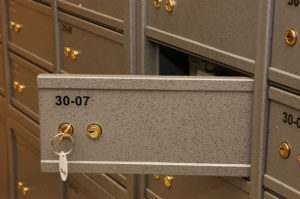Your Children Want You to Have an Estate Plan

Many clients delay creating an estate plan. People don’t want to think about scenarios where they are deceased or incapacitated, and some people delay because they are afraid of costs. Clients often think of the impact of estate planning on themselves, forgetting that their children want them to have an estate plan too.
After all, it is the adult children who are in charge of aging parents when they need long term care. They are also the ones who settle estates when parents die. Even if they can’t always come out and tell you, the recent article, “Why your children wish you had an Elder Law Estate Plan” from the Times Herald-Record spells out exactly why an elder law estate plan is so important for your loved ones.
Avoid court proceedings while living. In a perfect world, everyone over age 18 will have a financial power of attorney, a medical power of attorney and a living will, as well as other estate planning documents to facilitate their use. These documents appoint others to make financial, legal, and medical decisions, in case of incapacity. Without them, the children will have to get involved with time-consuming, expensive guardianship proceedings, where a judge appoints a legal guardian to make these decisions. Your life is turned over to a court-appointed guardian, instead of your children or another person of your choosing. This is an expensive and invasive process.
Avoid court proceedings after you die. If you die and you own assets in your own name that do not pass by contract, you will likely go through the probate process, a court proceeding that can be time consuming and costly. Not having any assets in trusts leaves your kids open to out of pocket costs, time, work and difficulty in gathering assets.
Wills in probate court are public documents. Trusts are private documents. Utilizing trusts can keep the details of your estate out of the public eye.
An elder law estate plan also plans for the possibility of long term care and costs. Nursing home care costs can be extreme, and many clients don’t plan for such a creditor during their life time. If you don’t have long term care insurance, you should consider an estate plan that facilitates long term care government benefits, such as a revocable trust plan.
The “elder law power of attorney” has unlimited gifting powers that could save about half of a single person’s assets from the cost of nursing homes. This can be done on the eve of needing nursing home care, but it is always better to do this planning in advance. This is one of the main roadblocks to Medicaid planning later in life. Client’s don’t update their powers of attorney and limited their gifting options.
Having a plan in place decreases stress and anxiety for adult children. They are likely busy with their own lives, working, caring for their children and coping in a challenging world. When a plan is in place, they don’t have to start learning about Medicaid law, navigating their way through the court system, or wondering why their parents did not take advantage of the time they had to plan properly.
You probably don’t want your children remembering you as the parents who left a financial and legal mess behind for the them to clean up. Speak with an elder law estate planning attorney to create a plan for your future. Your children will appreciate it.
And kids, see here for speaking with your parents about estate planning. https://galligan-law.com/probate-lawyers-say-talk-to-your-parents-about-estate-planning/
Reference: Times Herald-Record (May 23, 2020) “Why your children wish you had an Elder Law Estate Plan”

